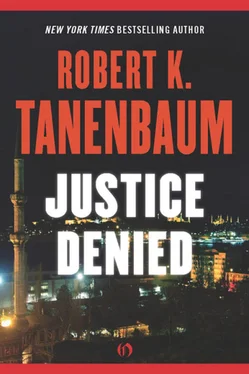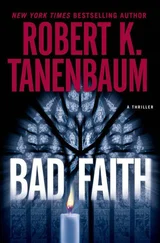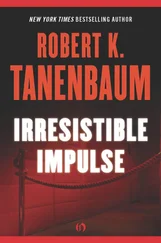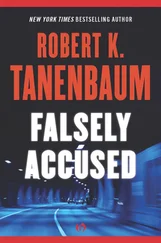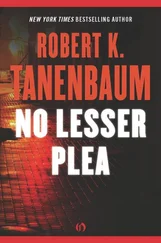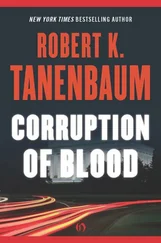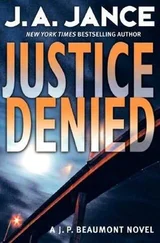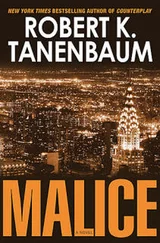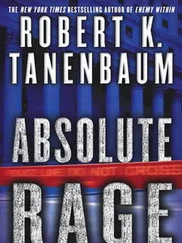Robert Tanenbaum - Justice Denied
Здесь есть возможность читать онлайн «Robert Tanenbaum - Justice Denied» весь текст электронной книги совершенно бесплатно (целиком полную версию без сокращений). В некоторых случаях можно слушать аудио, скачать через торрент в формате fb2 и присутствует краткое содержание. Год выпуска: 2010, Издательство: Open Road Integrated Media, Жанр: Криминальный детектив, на английском языке. Описание произведения, (предисловие) а так же отзывы посетителей доступны на портале библиотеки ЛибКат.
- Название:Justice Denied
- Автор:
- Издательство:Open Road Integrated Media
- Жанр:
- Год:2010
- ISBN:нет данных
- Рейтинг книги:3 / 5. Голосов: 1
-
Избранное:Добавить в избранное
- Отзывы:
-
Ваша оценка:
- 60
- 1
- 2
- 3
- 4
- 5
Justice Denied: краткое содержание, описание и аннотация
Предлагаем к чтению аннотацию, описание, краткое содержание или предисловие (зависит от того, что написал сам автор книги «Justice Denied»). Если вы не нашли необходимую информацию о книге — напишите в комментариях, мы постараемся отыскать её.
Justice Denied — читать онлайн бесплатно полную книгу (весь текст) целиком
Ниже представлен текст книги, разбитый по страницам. Система сохранения места последней прочитанной страницы, позволяет с удобством читать онлайн бесплатно книгу «Justice Denied», без необходимости каждый раз заново искать на чём Вы остановились. Поставьте закладку, и сможете в любой момент перейти на страницу, на которой закончили чтение.
Интервал:
Закладка:
“Like him? I love him. I want to marry him and have his babies. It’s the guy, Barney. This is a twenty-four-hour clearance. The fucking fans will go wild.”
“Yeah? I hope.”
“Why? You don’t like him?”
Wayne did not want to dispel his partner’s enthusiasm, but he had seen better suspects than this one go glimmering. He said, “Well, I’ll like him better after we talk to the girl, and after we get a couple of pieces of physical evidence.”
Frangi gave him a look. “Partner, if by some chance our boy was not the trigger, he knows who it was. Count on it! Fucking cute asshole! ‘It wouldn’t be a secret.’ Hey, I got an idea. Let’s take a look at the car.” He pressed the G button.
“Look at that,” said Frangi with satisfaction when, after ten minutes of searching, they stood behind the blue Polara. Wayne looked and then after a moment knelt down and examined the bolts that held the license plate into its frame. He rose, rubbing his fingers together under his nose.
“That settles it,” said Frangi.
“Hmmm,” said Wayne.
“What, what do you want, a signed confession? It’s the right plate on his car. He’s our guy, for cryin’ out loud.”
“Well, we can get a warrant with this, but I don’t know … he could have an alibi. Somebody could’ve boosted this car, and besides, the car they used was a Fairlane. This is a Polara.”
“Hey, let the D.A. worry about that shit.”
“I will. But I’ll tell you, even Roland’ll be happier if those ski masks and parkas show up in his closet, or the guns. And another thing. How do you figure a guy sloppy enough to use his own car for a hit in broad daylight is careful enough to clean the rust off his license-plate bolts and keep them oiled up?”
“We’re doing good,” said Roland Hrcany, concluding his tale of what the detectives had learned. “I’m almost amazed.” He was sitting across the desk from his boss, the bureau chief of the Homicide Bureau of the New York County D.A., on the Monday following the murder of Mehmet Ersoy.
The bureau chief said, “It is amazing. The stupidity of criminals has no known limit. And speaking of stupidity, the district attorney will be pleased. I know that’s important to you, Roland.”
Hrcany laughed obligingly. It had been a private joke between them for years that Roland was trying to curry favor with the exiguous Sanford Bloom, the D.A. In fact, Hrcany had as little respect for the D.A. as his chief, but his ferocious ambition showed itself as a desire to impress. The bureau chief was, in contrast, long past caring what anyone thought of him.
The bureau chief’s name was Roger Karp. Now he stood up and stretched and paced back and forth behind his desk. He was a very tall, lanky man, with close-cut light brown hair and a bony face. He moved stiffly, with a slight limp. At the age of four he had decided that he would be called Roger no longer, but Butch instead, a decision he had enforced by ceasing to answer to any other name. It was a stubbornness he had retained in adulthood.
Karp said, “They talk to this alibi yet, this girlfriend?”
“No, they haven’t turned her up yet. There’s nobody home at her place, and her parents don’t know where she is.”
“That could be a problem, if she comes out of nowhere later and confirms his story. However …”
“However, we’ve got way enough for a warrant,” said Hrcany.
“No question,” Karp agreed. “Let’s do it, and let me know as soon as you get anything. Bloom’s already been on my ass about it.”
Hrcany scooped up his papers and left. Karp walked over to his window and looked out. Six floors below he could see Leonard Street, a patch of blacktop that, at that point, was largely devoted to the parking of judges’ cars, while directly across Leonard was the New York State Office building, where he could actually observe an army of slow-moving clerks making it difficult for the citizens of New York to get license plates.
The license plate was the odd thing about Roland’s case. Simple carelessness and stupidity or a sophisticated bluff? Karp could imagine a defense lawyer saying to a jury, “Ladies and gentlemen: can you really believe that this intelligent, successful businessman would use his own car, bearing his own license, to commit an assassination in broad daylight?”
Well, yes, Karp could believe it. In his twelve years with the D.A. he had seen acts of egregious stupidity on the part of defendants that made this license-plate business look like the special theory of relativity. Still, the defense always used the “can you believe?” argument. And sometimes it worked.
Karp was not as sanguine as Roland about the lock they supposedly had on Mehmet Ersoy’s purported killer. On the other hand, Roland knew what he was doing. He was the best of Karp’s twenty-nine prosecutors, a man with a record in homicide prosecutions nearly as good as Karp’s own, which was the best ever. But had he been the worst, Karp still would not have interfered, except to correct some obvious legal or procedural boner. Karp could cajole, criticize, even humiliate his minions, but the A.D.A. in charge of a case was in charge of the case. To behave otherwise, to second guess, to countermand decisions, was to court chaos. Karp could not supervise the prosecution of all the thousand-odd murder cases that Manhattan produced each year. A thousand and climbing.
This rule, of course, did not apply to the D.A. himself, who felt free to intrude in any case that took his fancy. What took his fancy were the cases with high political profiles. Rich people or famous people getting killed. The bizarre ones that stuck to the front pages and appeared on the nightly news. Cases involving the interests of his friends, or acquaintances, or anyone with a nice suit who could grab him for fifteen minutes.
Karp was often able to ignore these intrusions or confound them. The D.A. was not a trial lawyer and never had been. If it was up to him, there wouldn’t be any trials at all, just gentlemanly discussions between defense and prosecution leading to a plea bargain and another cleared case.
Unfortunately for the D.A., without the capacity to go to trial and win an overwhelming proportion of the time, the plea-bargaining system would not work. The defendants would laugh in your face. Karp won trials, murder trials especially, which was why he was able to get away with what he got away with.
Karp moved closer to the window, resting his forehead against the cool glass. From this angle he could see the green street sign that dedicated the foot of Leonard Street to the former D.A., the legendary Francis P. Garrahy. Garrahy had died six years ago, an act for which Karp had just begun to forgive him. Karp’s heart still lived in the D.A.’s office that Garrahy had created and run for three decades: an organization of uncompromising legal probity, dominated by men whose natural home was the courtroom. In that organization the cream had risen to the old homicide bureau, of which Karp had briefly been a part.
When Bloom had got in, the first thing he had done was to dissolve the homicide bureau and assign homicide cases at random to a series of identical Criminal Courts bureaus. It made more sense administratively, went the argument, which meant it made sense to a man who had never tried a murder case and saw no difference between murder and any other crime.
But murder was different. The emotional currents and the legal intricacies that surrounded murder cases were unique, even in a state, like New York at the time, which had no death penalty. A homicide bureau had to be a special sort of place.
Karp had recently been given a recreated homicide bureau, not because Bloom had seen the light but because Karp had caught him at so much chicanery, malfeasance, and blundering so often that, although Karp had never even hinted at a quid pro quo, Bloom’s politician’s soul had cried out that Karp must be given something big and substantial, that by such a gift his fate might be more closely tied to Bloom’s own. Besides which there was the chance that, in the dangerous world of murder trials, Karp might one day screw up so badly that Bloom could dump him publicly, and with the approbation of the vulgar herd.
Читать дальшеИнтервал:
Закладка:
Похожие книги на «Justice Denied»
Представляем Вашему вниманию похожие книги на «Justice Denied» списком для выбора. Мы отобрали схожую по названию и смыслу литературу в надежде предоставить читателям больше вариантов отыскать новые, интересные, ещё непрочитанные произведения.
Обсуждение, отзывы о книге «Justice Denied» и просто собственные мнения читателей. Оставьте ваши комментарии, напишите, что Вы думаете о произведении, его смысле или главных героях. Укажите что конкретно понравилось, а что нет, и почему Вы так считаете.
